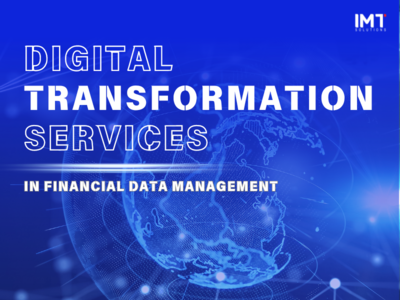Optimizing Hospital Management and Patient Care with Cloud-based Healthcare Solutions
Cloud computing has transformed many industries over the last decade, and healthcare is no exception. According to Fortune Business Insights, the global healthcare cloud computing market is expected to grow at a 17.5% CAGR from 2024-2032. This growth indicates that healthcare institutions around the world are increasingly adopting cloud-based solutions. In this blog, we’ll look at cloud-based healthcare solutions that can help optimize hospital management and patient care.
Different Types of Cloud-based Healthcare Solutions
Cloud-based healthcare solutions employ cloud servers to store, manage, and process data more efficiently. These approaches provide seamless access and make data management easier for healthcare providers. According to Forrester, 73% of healthcare institutions utilize cloud computing in their operations. This growing adoption demonstrates that cloud computing is increasingly compatible with healthcare solutions, providing numerous benefits.
Currently, cloud-based healthcare solutions are divided into two types: deployment and distribution. Each model addresses specific needs of healthcare organizations, tailoring solutions to improve efficiency and patient care.

By deployment
Cloud-based solutions are classified according to deployment and how the cloud infrastructure is implemented. Each model can cater to each organization’s security, cost, and data management requirements:
- Public cloud: This cloud model is owned and operated by a third-party provider, making it available to anyone on the internet. This accessibility enables multiple organizations to share computing resources remotely and improve collaboration. While it is the most cost-effective and scalable approach, the security of public clouds is inadequate for storing highly sensitive data.
- Private cloud: In contrast, private cloud servers are owned by a single organization. This approach necessitates on-premise cloud facilities, which are more secure, governed, and private than public clouds.
- Hybrid cloud: A combination of public and private clouds, with automation to orchestrate the two models. This combination enables organizations to leverage the best features of both models, increasing flexibility and convenience.
By distribution
These solutions are determined by how cloud resources and services are delivered to users:
- Software as a Service (SaaS): Refers to the distribution of software applications to end users via the internet. This method lowers IT costs for installing and maintaining healthcare applications. Organizations can scale their services according to their usage and needs.
- Infrastructure as a Service (IaaS): Cloud service providers will give organizations access to cloud-hosted infrastructure that is physically located in their data centers. This allows organizations to use cloud-based solutions in the same way that they would on-premise hardware, but without having to physically manage them. This model simplifies the process of building on-premise hardware, increasing flexibility and cost-effectiveness.
- Platform as a Service (PaaS): Cloud providers will provide all of the resources required for application development, eliminating the need to update tools and maintain hardware through the cloud. This architecture enables for the cost-effective and versatile development of new custom applications for the organization.
Benefits of Cloud-based Healthcare Solutions in Optimizing Hospital Management and Patient Care
Migrating to cloud-based healthcare solutions offers many benefits, optimizing hospital management and improving patient care. By leveraging the cloud, healthcare organizations can improve efficiency, reduce costs, and deliver better outcomes for patients. Here are the key advantages:
- Cost reduction: Cloud-based solutions eliminate the need for expensive on-premise hardware and reduce IT maintenance costs. Healthcare organizations can adopt a pay-as-you-go model, only paying for the resources they use. This cost-efficiency is especially beneficial for smaller hospitals and clinics with limited budgets.
- Improve data handling and availability: The cloud provides a centralized platform for storing and managing large volumes of healthcare data, including electronic health records (EHRs). Data is readily available to authorized personnel, ensuring quick retrieval for clinical decisions.
- Enhanced data accessibility and interoperability: Cloud-based healthcare solutions enable secure, real-time access to patient data from anywhere, making remote consultations and telemedicine more efficient. They also improve interoperability, allowing various healthcare systems to communicate and share data seamlessly.
- Advance collaboration between healthcare providers: The cloud fosters better collaboration by allowing healthcare providers to share patient information securely and in real-time.
- Enable emerging technology integration: Cloud platforms support the integration of artificial intelligence (AI) and machine learning (ML) tools, revolutionizing healthcare delivery. These technologies also optimize operational workflows, such as scheduling and resource allocation, increasing overall efficiency.

Challenges for Consideration in Implementing Cloud-based healthcare solutions
While cloud-based healthcare solutions offer numerous benefits, their implementation poses significant challenges if not carefully planned. These challenges require thorough evaluation and strategic approaches to ensure successful adoption and integration into healthcare systems. Below are the major challenges:
Lack of specialists
Cloud-based solutions necessitated the management of cloud technology by skilled specialists. However, not every healthcare business has enough personnel experienced with cloud solutions. As a result, healthcare companies need to invest in staff training and hire external specialists for educating their employees on how to employ these solutions effectively.
Difficulty in cloud adoption
Adopting cloud solutions necessitates careful preparation and a thorough grasp of organizational requirements. It is not enough to simply use cloud services; one must also consider where and how they add the greatest value. Healthcare organizations must assess their current IT infrastructure, identify areas that require modernization, and consider whether cloud adoption corresponds with their strategic goals.
Security challenges
Security issues are a major barrier to implementing cloud-based healthcare technologies. Cybercriminals frequently target cloud servers to get access to sensitive patient information, making data breaches a serious threat. Healthcare providers must guarantee that data is transferred securely and stored in accordance with legislation. Additionally, ensuring that cloud providers adhere to strong security procedures is crucial to protecting patient information.
In conclusion, healthcare companies could generate $100–$170 billion in value by 2030 through effective cloud adoption. Leveraging cloud capabilities optimizes operations, enhances patient care, and enables innovation. Addressing challenges like security and integration is crucial for unlocking this potential. For more information about cloud-based healthcare solutions, don’t hesitate to reach out to us for a consultation.






